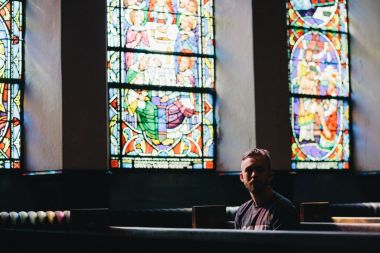Fourteen per cent of US Christians left their churches after Trump's election, new research finds

Some 14 per cent of Christians abandoned their churches after the election of Donald Trump, according to research by The Washington Post showing that a number of people who went to a church in September last year had left it by mid-November.
The Post surveyed 957 people before and after the 2016 presidential election, in late September and mid-November. Of those who said they had attended a house of worship in September, 14 percent reported that they had left that particular church by mid-November.
Trump secured the support of 81 per cent of white evangelicals in the 2016 election.
But after that election, 'leavers' were distributed across the religious population, and included 10 per cent of evangelicals, 18 per cent of mainline Protestants, and 11 per cent of Catholics, according to the survey.
Around 15 per cent of those who believe that American politics has become divisive left their political houses of worship. Of those who don't think politics is inherently divisive, close to none left their political house of worship, the Post reported.
Trump appears currently to be suffering from relatively low support among evangelicals, according to the research.
'In the same survey, we asked evangelicals first to tell us their own level of support for Trump, and second to estimate their clergyperson's support of Trump,' the Post reported. 'Among this group, Trump's average feeling thermometer rating — which ranges from 0 to 100 — was just over 48. While that's low, Hillary Clinton's average was only 25. On average, they felt their clergy liked him only slightly better, averaging 50 on the same 100-point scale.'
The report speculated on why people are leaving their churches. 'On the one hand, if people are leaving houses of worship because of political disagreements, they may not be learning the skills needed to talk across differences and participate in politics.
'On the other hand, as congregations become more engaged with politics, worshipers learn to connect their values with their political options. And the members most likely to leave over political disagreements tend to be marginal, infrequent attendees anyway.
'People leaving their houses of worship over political disagreements is natural and to be expected. It's certainly happened frequently, sometimes explosively, over the history of religion.'











